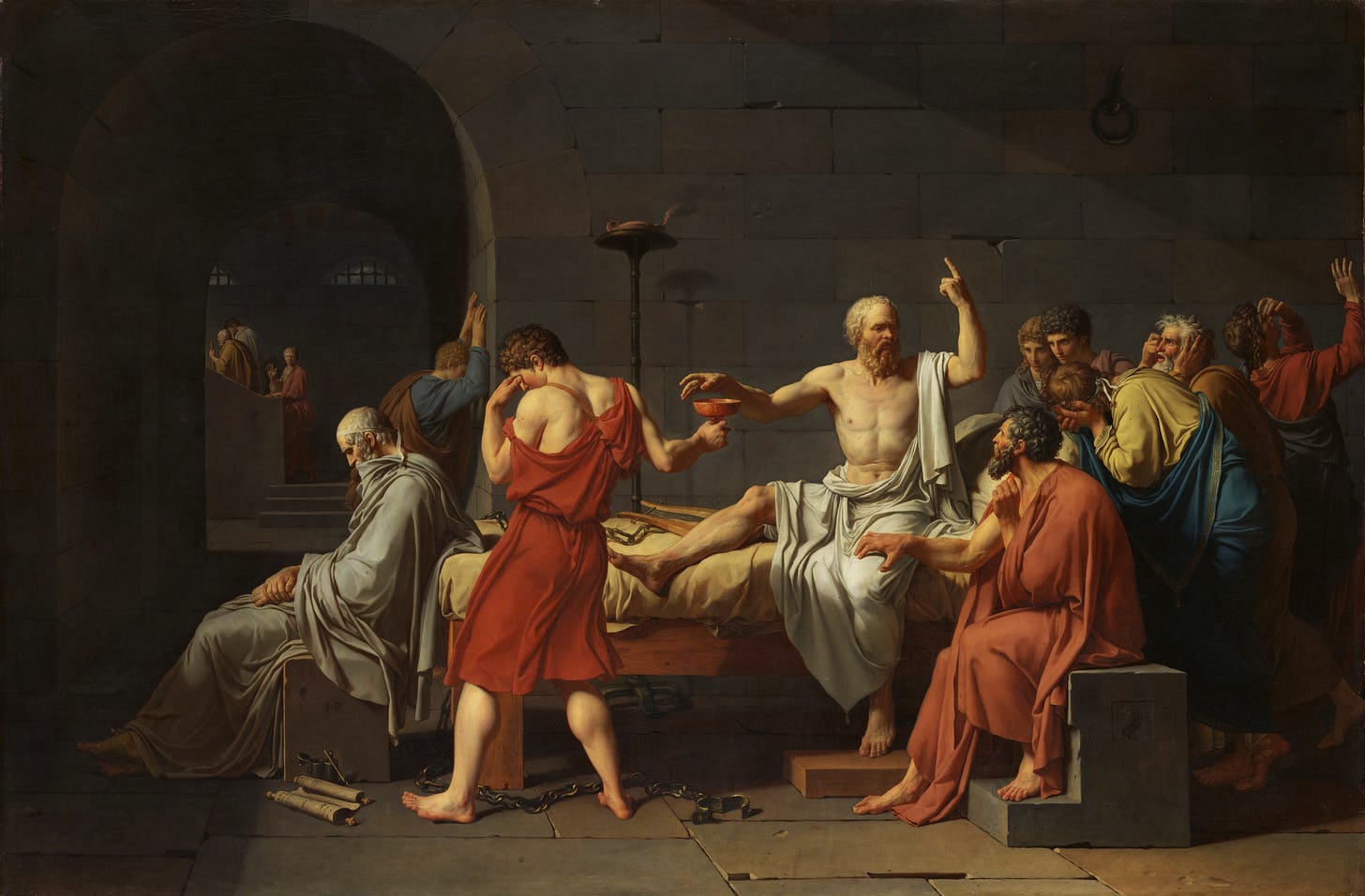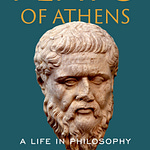
Last week, Socrates was on his way to his trial in the Euthyphro dialogue. In Apology, Socrates is giving his defense against three charges:
Not recognizing the gods recognized by the State
Manufacturing new gods
Corrupting the youth
If you are expecting any contrition on the part of Socrates, you’ve come to the wrong place. Here, apology means a defense speech in a legal proceeding, and Socrates is anything but apologetic in the sorrowful sense. Here we see a defiant man unconcerned with death but rather in continuing on in a life of justice and piety despite the threat to his life.
It’s quite startling actually. The defiance of Socrates in the face of 501 of his peers. But it’s also quite disturbing that a society that produced such great works of art around this exact time (399BC) could also kill one of its best citizens. Can civilization handle this level of truth telling?
In this episode, I consider Socrates’ defense to the three charges, look at Aristophanes’ Clouds and another account of the trial, Xenophon’s Apology.
Show Notes:
Book Versions:
Plato Complete Works - edited by John M. Cooper - translated by G.M.A. Grube
The Last Days of Socrates - translated by Hugh Tredennick and Harold Tarrant (intro) - Penguin Classics
Xenophon Apology - translated by Martin Hammond - Oxford World’s Classics
Xenophon Socrates’ Defense - translated by Hugh Tredennick and Robin Waterfield, with an excellent intro by Waterfield - Penguin Classics













